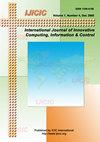技术熟练人员在遗留信息系统管理中的必要性
IF 1.1
Q4 COMPUTER SCIENCE, ARTIFICIAL INTELLIGENCE
International Journal of Innovative Computing Information and Control
Pub Date : 2022-11-20
DOI:10.11113/ijic.v12n2.377
引用次数: 0
摘要
面对激烈的竞争、全球化和上市时间压力,技术熟练人员和信息系统对当代企业的成功至关重要。它们是一个基本要素,在一个组织感知环境变化和有效应对这种变化的能力中起着关键作用。除了资讯系统的技术组成部分和技术创新的快速步伐外,参与设计、操作和维护的人员也是资讯系统的重要组成部分。大多数关于决定是否继续使用遗留信息系统的研究工作主要集中在内在敏捷性因素上。外部敏捷性因素,如技术熟练人员,在很大程度上被忽视了。但是,随着信息系统的老化或在高度僵化的过程中,外部敏捷性因素(如技术熟练人员)将开始在决定是否延长信息系统的生命周期方面发挥重要作用。然而,对于必须支持遗留系统的组织来说,人类技能过时是一个日益严重的问题。由于市场需求,技术熟练人员要么老化,要么将他们的技能升级为非过程编程范式。因此,必须定期评估遗留信息系统的技术熟练人员的能力水平。本研究在传统信息系统应用程序的基础上,利用开发的带试题的在线评估系统对技能型人才的技术知识进行评估和分类。结果表明,技术熟练人员仍然可以操作和维护案例研究信息系统。本文章由计算机程序翻译,如有差异,请以英文原文为准。
The Imperative of Technical Skilled Staff in Legacy Information System Management
Technical skilled personnel and information systems are important for the success of contemporary firms as they face intense rivalry, globalization, and time-to-market pressures. They are an essential element that plays a critical role in an organisation’s ability to sense environmental change and respond efficiently and effectively to that change. Besides the technology components of an information system and the fast pace of technological innovation, the people involved in the design, operation and maintenance are essential elements of information systems. Most of the research work on deciding whether or not to continue with legacy information systems has been centred mainly on intrinsic agility factors. Extrinsic agility factors like technical skilled personnel have largely been overlooked. But, as information systems age or in the case of highly rigid processes, extrinsic agility factors like technical skilled personnel will start playing an important role in deciding whether to prolong the life cycle of the information system. However, human skills obsolescence is a growing problem for organizations that must support legacy systems. The technical skilled staff are either ageing out or upgrading their skills to a non-procedural programming paradigm due to market demand. It is, therefore, imperative to regularly assess the technical skilled personnel competency level of a legacy information system. This study evaluates and classifies the technical knowledge of skilled personnel using a developed online assessment system with test questions based on the legacy information system application program. The result obtained indicates that the technical skilled staff can still operate and maintain the case study information system.
求助全文
通过发布文献求助,成功后即可免费获取论文全文。
去求助
来源期刊
CiteScore
3.20
自引率
20.00%
发文量
0
审稿时长
4.3 months
期刊介绍:
The primary aim of the International Journal of Innovative Computing, Information and Control (IJICIC) is to publish high-quality papers of new developments and trends, novel techniques and approaches, innovative methodologies and technologies on the theory and applications of intelligent systems, information and control. The IJICIC is a peer-reviewed English language journal and is published bimonthly

 求助内容:
求助内容: 应助结果提醒方式:
应助结果提醒方式:


